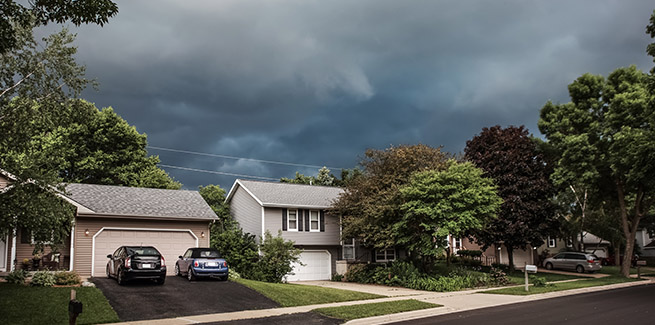The Westpac-Melbourne Institute Index of Consumer Sentiment declined by 0.9 per cent over April, down to 95.8.
The movement was modest compared to a sharp 4.2 per cent drop over March, which Westpac reported had resulted in new concerns around interest rates and inflation amid the Ukraine invasion, a spike in petrol prices and flooding across Queensland and NSW.
But the newest index reading is the lowest since September 2020, when COVID fears were dominant.
“Last month’s detail pointed to geopolitics, floods, inflation, and interest rates as the key explanations for the sharp fall in the index,” an analysis from Westpac chief economist Bill Evans noted.
“There is further evidence that interest rates, inflation and weather continued to unnerve consumers in the current survey.”
Confidence among respondents with a mortgage took a sharper hit, down 9.2 per cent over April, amid concerns the Reserve Bank of Australia (RBA) could raise the cash rate earlier than previously expected.
The majority (70 per cent) of consumers expect rates to rise in the next 12 months, up from 67 per cent in March.
Close to two-fifths (36 per cent) expect rates to rise by more than 1 percentage point, compared to 30 per cent in March.
Westpac brought forward its forecast for when the RBA will lift the cash rate, from its previous August to June, after the central’s bank’s last monetary policy decision.
“The board is no longer emphasising patience,” Mr Evans noted.
“In fact, the governor emphasised that the board will be reviewing the data releases ‘over coming months’ – phrasing that points to a June lift off.
“This guidance seems to rule out the prospect of a rate increase as early as the May board meeting although markets are certainly discussing that prospect.”
The major bank expects a series of rate hikes, before a pause in September and further increases in the first half of 2023.
Mr Evans tipped the rate will peak at around 2 per cent by June next year.
However, the prospect of interest rate increases may have buoyed sentiment for those who stand to benefit. Westpac reported confidence gains in its index across those aged over 65 (up 7 per cent) and freehold home owners (up 5.5 per cent) – the segments without large mortgage debts that are also more likely to depend on interest incomes.
The House Price Expectations Index meanwhile slid by 3.5 per cent from the month before, to 134.1. It was down by 18.2 per cent year-on-year.
The “time to buy a dwelling” sentiment index sat at a reading of 78.7, up by 0.5 per cent from the previous month, but plunging by 26.5 per cent year-on-year.
March had seen a 14-year low in home-buying sentiment.
“High prices, rising fixed mortgage rates and the expectation of rises in variable mortgage rates continue to weigh on affordability and confidence in the housing sector,” Mr Evans wrote.
 ;
;
